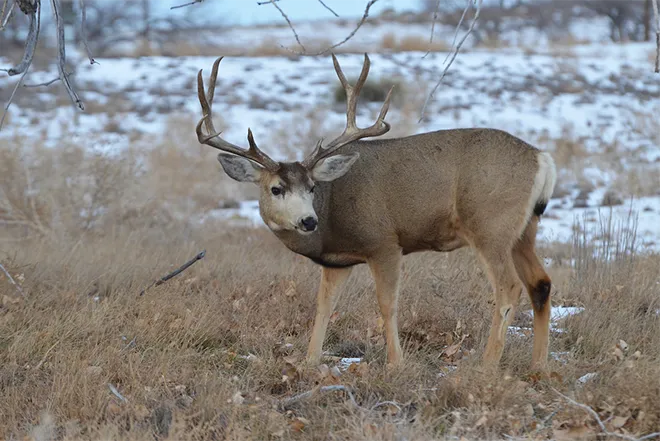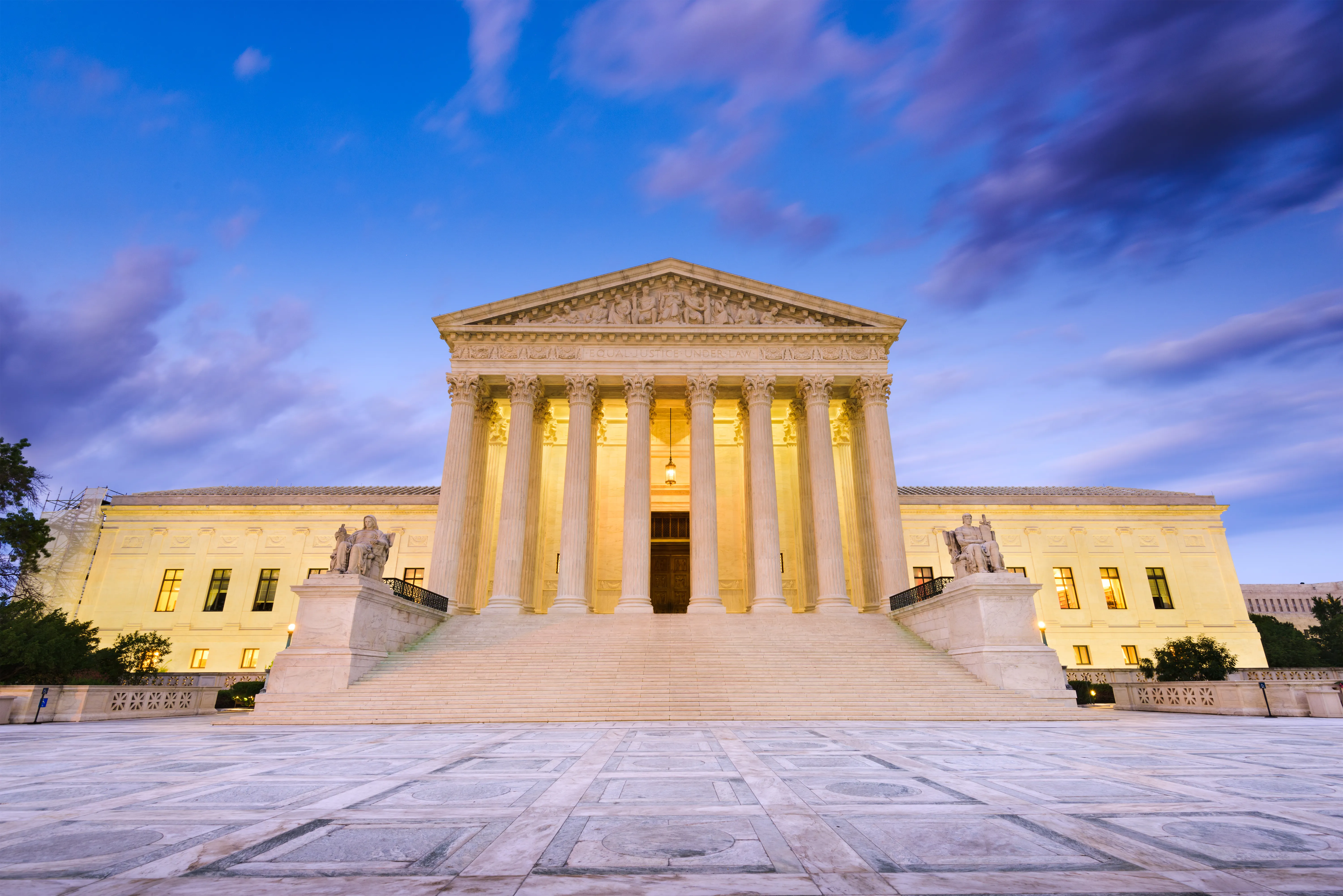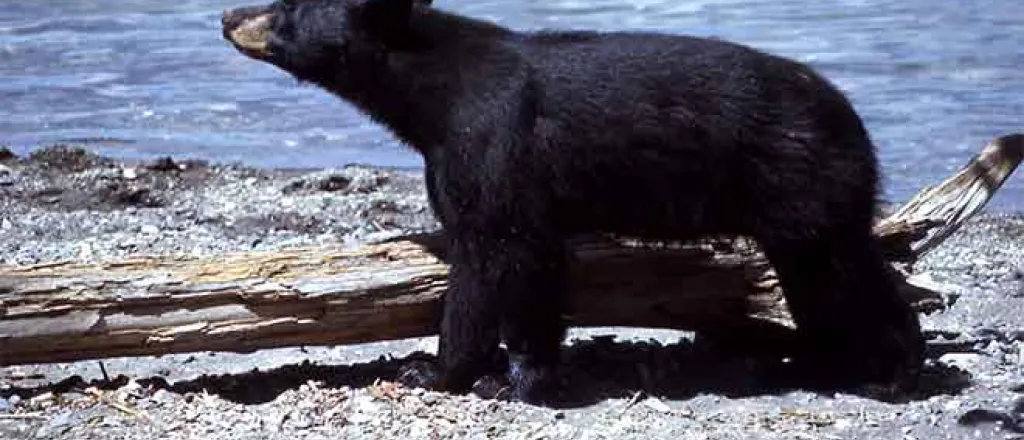
Man attacked, injured by bear in Lake City home
Colorado Parks and Wildlife responded Thursday night when a 74-year-old man was attacked by a black bear inside his home on the north side of Lake City after the bear and her three cubs opened a partially cracked sliding glass door and entered the home.
The attack occurred around 8:30 p.m. October 3. The residents in the home were startled when they heard a loud crash and saw the bears entering through the door.
The victim of the attack grabbed a chair from the kitchen and attempted to direct the adult bear out the door. But the bear charged the man, knocking him into a wall before it briefly stood over him. The bear swiped at the man, who incurred significant wounds from being clawed, including wounds to the head, neck, both arms, lower abdomen, shoulder and calf.
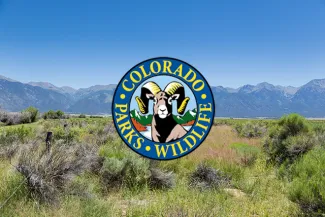
Colorado Parks and Wildlife
Emergency medical personnel were able to treat the victim’s wounds on the scene, and the victim declined to be transported to the hospital.
“It’s certainly lucky we didn’t have a fatality, because it was close,” said CPW wildlife officer Lucas Martin.
When law enforcement and medical personnel arrived, the sow’s three cubs were still inside the home despite attempts by the residents to haze the bears away. At that time, the residents had escaped the bears by locking themselves in a bedroom. A Hinsdale County Sheriff’s Deputy was eventually able to haze the cubs out of the home.
Two CPW District Wildlife Managers also responded. The sow and all three cubs climbed trees outside the home, and after preliminary confirmation of their involvement in the attack, all four bears involved were subsequently euthanized.
The bears were sent to CPW’s health lab in Fort Collins to be tested for disease and to undergo a full necropsy.
“There was no question that these were the bears involved,” said CPW Area Wildlife Manager Brandon Diamond. “It’s a terrible set of circumstances that, unfortunately, our District Wildlife Managers are routinely faced with. Clearly, these bears were highly habituated and were willing to enter an occupied house with the residents sitting just feet away. When a bear reaches this level of human habituation, clearly a lot of interaction with people has already happened, and unless communities are working with us collaboratively and communicating issues, we have no opportunity to intervene.”
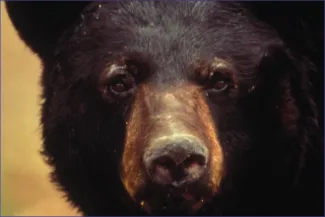
Prior to Thursday night’s attack, CPW had only received eight official reports of bear activity in Hinsdale County in 2024. However, it is common for bears to be in and around Lake City, and CPW officers have been aware of chatter on social media related to bears getting into unoccupied homes and garages in the area throughout the late summer and early fall. Some of those reports were of sow bears with cubs.
“When we have multiple sows with multiple cubs in town and conflict is occurring based on the ongoing availability of human food sources, it creates a very complex situation to mitigate,” said Martin. “Unfortunately, cub bears that are taught these behaviors by their mother may result in generations of conflict between bears and people.”
CPW emphasizes the importance of the public reporting all bear incidents to their nearest CPW office to try and prevent conflict from escalating to the level of an attack.
“We sometimes hear through the rumor mill or grapevine of bears getting in through open windows or entering garages and that kind of stuff,” Martin said. “Often, people want to get on social media and post about it, but they never actually call the authorities. We don’t only want calls when something escalates to this level. We want to be able to do some management before things get to this level.”
This is the first reported bear attack in Colorado in 2024, compared with six reports in 2023. There have been 96 reported bear attacks on humans in Colorado dating back to 1960.
CPW stresses the importance of the public doing their part to remove attractants and food sources that bring bears close to human-occupied spaces.
“This is a tragic thing that has happened, and it happened because bears continue to have access to human food sources,” Martin said. “We’ve talked about this for decades – access to human food sources, including trash and bird feeders, is what leads to escalating and sometimes dangerous behavior from black bears. The result is a lose-lose for bears and people.”
Colorado Parks and Wildlife offers these tips and precautions to help you prevent human/wildlife conflicts that can also save a bear’s life.
Bearproofing your home
- Keep garbage in a well-secured location.
- Only put out garbage on the morning of pickup.
- Clean garbage cans regularly to keep them free of food odors: ammonia is effective.
- Use a bear-resistant trash can or dumpster.
- Don't leave pet food or stock feed outside.
- Bird feeders are a major source of bear/human conflicts. Attract birds naturally with flowers and water baths. Do not hang bird feeders from April 15 to Nov. 15.
- Do not attract other wildlife by feeding them, such as deer, turkeys or small mammals.
- Don’t allow bears to become comfortable around your house. If you see one, yell at it, throw things at it, make noise to scare it off.
- Secure compost piles. Bears are attracted to the scent of rotting food.
- Clean the grill after each use.
- Clean-up thoroughly after picnics in the yard or on the deck.
- If you have fruit trees, don't allow the fruit to rot on the ground.
- If you keep small livestock, keep animals in a fully covered enclosure. Construct electric fencing if possible. Don’t store livestock food outside, keep enclosures clean to minimize odors, hang rags soaked in ammonia and/or Pine-Sol around the enclosure.
- If you have beehives, install electric fencing where allowed.
- Talk to your neighbors and kids about being bear aware.
- Keep garage doors closed.
For more information on bears in Colorado, visit cpw.state.co.us/bears. If you have questions or need to report bear problems, call your nearest CPW office.

